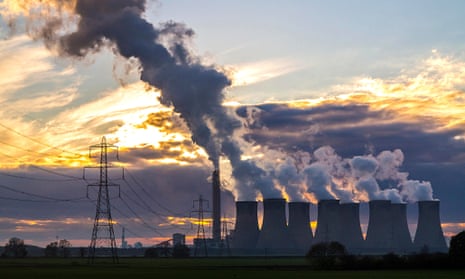As the general election edges closer, it is becoming increasingly rare to hear our politicians agree on any topic, as parties set out distinct offers to voters.
So it was welcome that in a joint statement David Cameron, Ed Miliband and Nick Clegg pledged to work towards agreeing a new international deal on climate change; to agree UK carbon budgets in accordance with the Climate Change Act; and to accelerate the transition to a low-carbon economy and end the use of “unabated coal” in power generation.
For me, in my role leading the Church of England on environmental affairs, it was a moment that promoted renewed hope in our joint quest to tackle the environmental challenges facing us, which are the greatest moral challenge of our time.
Probably the most profound of these is climate change. It presses hard on all of us, but particularly threatens the world’s poorest and most vulnerable people, as in Vanuatu. We have a duty to help safeguard those least able to protect themselves from the impacts of a changing climate.
Tackling climate change is something that needs specific policies. The latest climate science highlights the imperative for the world to move away from the burning of fossil fuels; specifically, 80% of the world’s coal must stay in the ground in order to give a good chance of keeping the global temperature rise under the danger level of 2C.
This may not sound like much. But small changes in average temperature can have huge consequences in certain regions.
Consider that the global temperature difference between our modern climate and the end of the last ice age is only about 4C-5C, and that the world may well experience warming of similar scale by the end of this century without urgent action to tackle climate change, and both the scale and rationale of the challenge become clearer.
In addressing this challenge, developed nations have a moral duty to lead. Britain used to be a major coal-producing nation, and the coal we mined – and the industrial revolution to which it gave birth – has raised living standards in many parts of the world.
But climate change now threatens to lower living standards and life expectancy in the poorest parts of the world, where pollution from coal burning is causing premature deaths and illness. This moral duty over climate change is highlighted in the regular round of UN talks. We should not forget that the world’s richest countries have repeatedly affirmed their duty to lead efforts to cut greenhouse gas emissions. However, they have not always lived up to their promises – making this one of the biggest bones of contention in the annual UN climate negotiations on which we depend for a global solution to this global problem.
Recognising the implications of this, at the Church of England we have begun to put our own houses in order – churches, schools, halls and parsonages - through our Shrinking the Footprint campaign. This aims to cut the carbon footprint of the church’s 42 dioceses and 16,000 churches by 80% by 2050.
Increasingly there are calls for the church to disinvest from fossil fuels and invest in renewable energy. A report is expected at General Synod in July.
But our political leaders must play their part. If the recent pledge that the leaders made is to be more than just words, it must lead to firm action.
One of the simplest and cheapest yet most profound actions that the three party leaders could take is to commit to a date for ending coal-fired electricity generation in the UK. Having accepted the principle, this is the logical next step. The date should preferably be 2020, but certainly no later than 2025.
This would show that there is substance behind the leadership that Cameron, Clegg and Miliband have already shown – first as individuals when the Climate Change Act was passed a little over six years ago, and again by signing their recent joint pledge.
It is not as though we would be alone. China and India, far less developed than the UK, are taking their own steps to constrain coal burning. But they will depend on it for decades, whereas we do not need to.
For a country that built the industrial revolution on the backs of coal miners, such a move would be hugely symbolic. It would also prove emotive for communities here in Britain that have strong heritage links to coal.
But the reality is that there are now only a few thousand people employed either in mining or in coal power stations in this country. The time is right to close the chapter on old king coal in Britain.
Doing so would reaffirm our leadership on climate change. It would resonate around the world, and raise hopes of achieving the next global agreement on climate change that we need later this year.
The science tells us what we must do to address climate change; the moral duty is ours.





